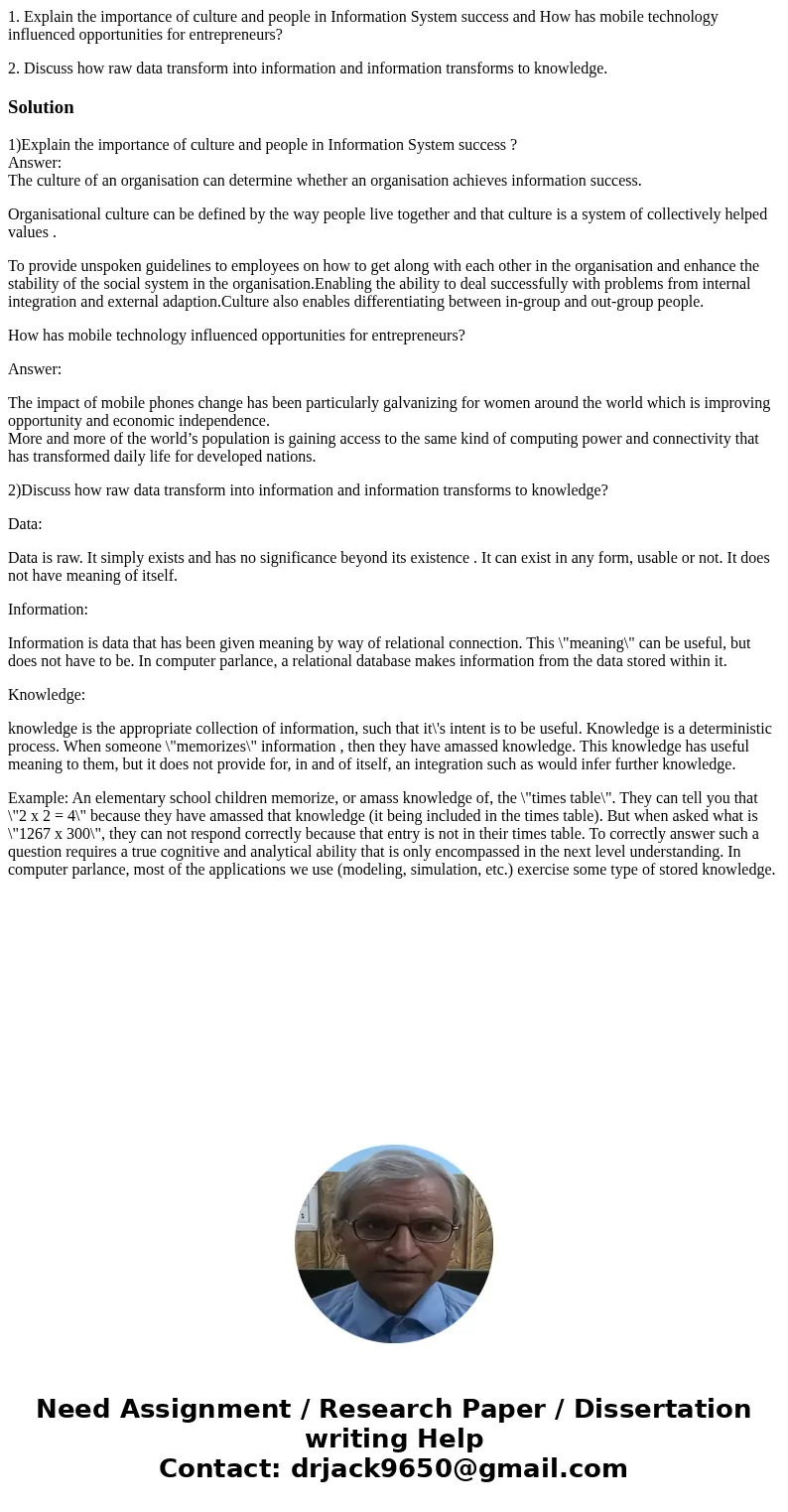1 Explain the importance of culture and people in Informatio
1. Explain the importance of culture and people in Information System success and How has mobile technology influenced opportunities for entrepreneurs?
2. Discuss how raw data transform into information and information transforms to knowledge.
Solution
1)Explain the importance of culture and people in Information System success ?
Answer:
The culture of an organisation can determine whether an organisation achieves information success.
Organisational culture can be defined by the way people live together and that culture is a system of collectively helped values .
To provide unspoken guidelines to employees on how to get along with each other in the organisation and enhance the stability of the social system in the organisation.Enabling the ability to deal successfully with problems from internal integration and external adaption.Culture also enables differentiating between in-group and out-group people.
How has mobile technology influenced opportunities for entrepreneurs?
Answer:
The impact of mobile phones change has been particularly galvanizing for women around the world which is improving opportunity and economic independence.
More and more of the world’s population is gaining access to the same kind of computing power and connectivity that has transformed daily life for developed nations.
2)Discuss how raw data transform into information and information transforms to knowledge?
Data:
Data is raw. It simply exists and has no significance beyond its existence . It can exist in any form, usable or not. It does not have meaning of itself.
Information:
Information is data that has been given meaning by way of relational connection. This \"meaning\" can be useful, but does not have to be. In computer parlance, a relational database makes information from the data stored within it.
Knowledge:
knowledge is the appropriate collection of information, such that it\'s intent is to be useful. Knowledge is a deterministic process. When someone \"memorizes\" information , then they have amassed knowledge. This knowledge has useful meaning to them, but it does not provide for, in and of itself, an integration such as would infer further knowledge.
Example: An elementary school children memorize, or amass knowledge of, the \"times table\". They can tell you that \"2 x 2 = 4\" because they have amassed that knowledge (it being included in the times table). But when asked what is \"1267 x 300\", they can not respond correctly because that entry is not in their times table. To correctly answer such a question requires a true cognitive and analytical ability that is only encompassed in the next level understanding. In computer parlance, most of the applications we use (modeling, simulation, etc.) exercise some type of stored knowledge.

 Homework Sourse
Homework Sourse